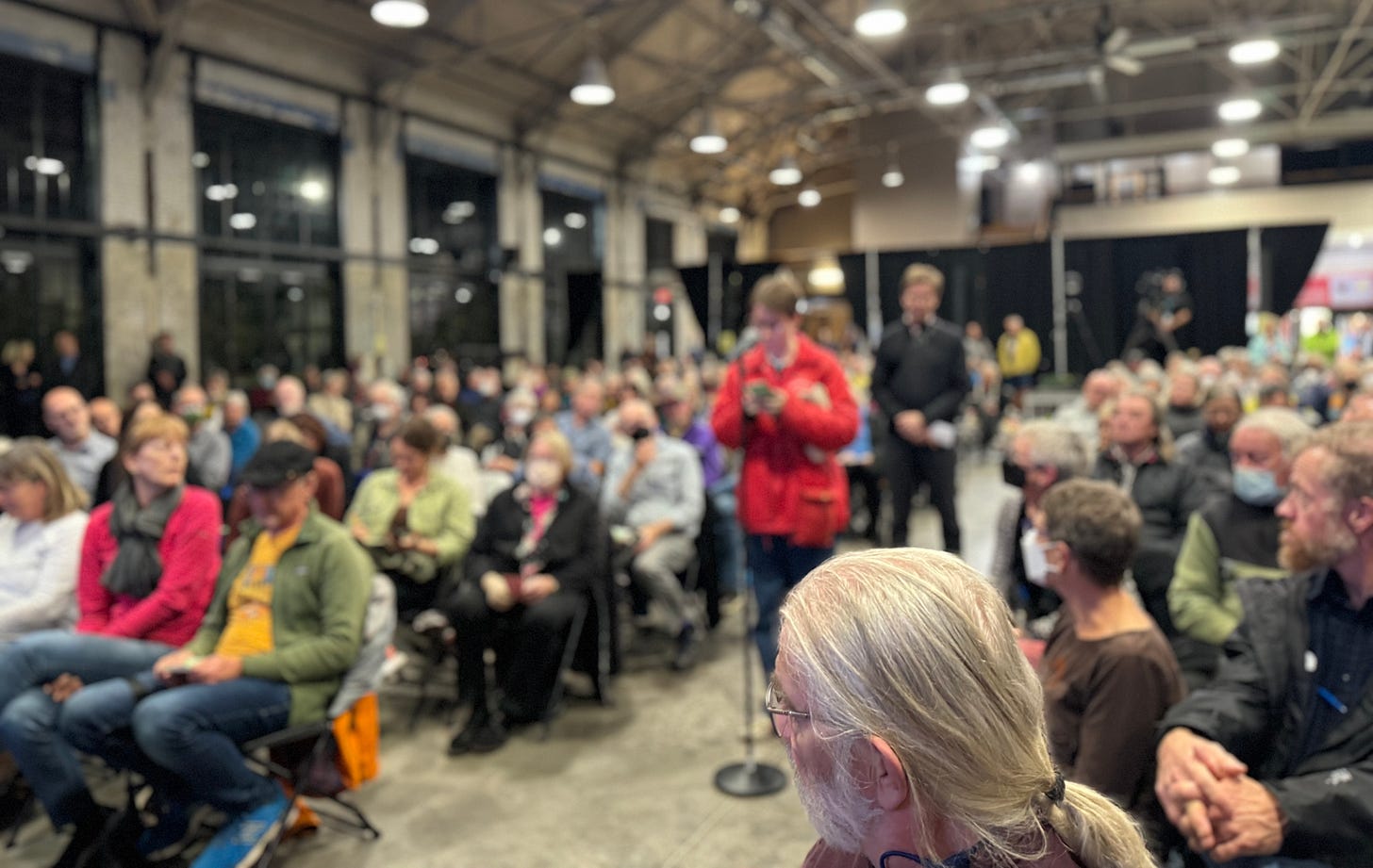Fix Trust in City Hall 1: Three Ways to End the Influence of Money in Municipal Politics
3 Ideas for Fixing Campaign Finance; 2 of Which You Might Never Have Thought Of!
This is the first in a series of common sense solutions for restoring trust in city hall
Reciprocity is bred in the bone
Money places undue influence on the political process. Even small amounts, despite the objections of most politicians, can nudge decision makers in a certain direction.
It all comes down to reciprocity. As humans, we’ve advanced through cooperation. The unspoken expectation of reciprocity is what allows cooperation to work on a large scale.
In practical terms, this means people generally feel obliged to return a favour.
Donors will find work-arounds
As a result, we have limits on political campaign donations. But people find a way around those limits.
When corporations and unions are banned from contributing, executives and their families can step in and contribute. The effect is the same.
So how do we reduce or remove the influence of money in municipal politics?
There are three strategies worth trying. For this, we’re borrowing heavily from the work of Dave Meslin and his highly-recommended book Teardown: 100 Remedies for a Broken Democracy.
1. Reduce maximum contributions
In Ontario and undoubtedly elsewhere, municipal campaign finance rules are set at the provincial level. Currently, the maximum contribution an individual can give to a candidate is $1200.
If a few executives, their spouses and maybe even their employees donate the maximum, that can reach a material amount pretty quickly.
One response would be to cut the maximum donation to, say, $250.
That might disincentivize some donors. At the very least it would compel candidates to find more people willing to donate smaller amounts and that is good for the democratic process.
2. Provide voters with publicly-funded contribution vouchers
Political donations are widely subsidized. That subsidy may take the form of a rebate, a tax credit or even a matching grant.
Another option is for the government to fully fund political campaigns. Replace private donations with 100% public money.
Each voter would be provided with a voucher that they can give to the candidate of their choice. Candidates would need to work hard to convince voters to assign their voucher to them.
While this seems like a costly and unusual approach, it’s worth remembering that the public pays for all other aspects of the election. Voting offices, ballots, scrutineers, …
So why not pay for the campaign also?
This could remove the undue influence of large donors. Alternatively, it might just refocus their efforts on supporting a ground game to convince voters to assign those coupons to a preferred candidate.
3. Make contributions fully anonymous
A third idea for campaign finance reform is perhaps the most promising: make all contributions anonymous so that candidates cannot see who is supporting their campaign.
Rather than candidates managing the donation process themselves, contributions would be collected and distributed centrally by the municipal authorities (who could even process rebates immediately).
Candidates would never know who had contributed to their campaign. Nor would they be able to verify if a claim that someone had contributed was actually true.
It’s like voting in secret
When we vote, it’s done in secret. That way, no one can lean on us to vote a certain way, as it’s impossible to validate how we cast our ballot.
If we are serious about taking the influence of money out of politics, this third approach might get the best results.
Make campaign donations secret. Make it impossible to verify if someone actually donated to a candidate.
Here’s a thought. If donations were secret, and donations dropped significantly, what does that tell us about the ability of money to unduly influence politics?







This is a very useful discussion:
let's think this thru a little further ( for / in Ottawa) ; developers who want to influence Council votes will find other ways ... and may go further underground / under the table to do so. The climate of developers and their $$ influence ( ie. morally, it's corruption - but legitimized by the City / Province itself ) ... in Ottawa, has been one of long standing. Thus probably hard to root it out in <20 years. So my sense is that 1st option might be the better one: significantly reduce the amount anyone can give and insure there is transparency about who is making the donation ( full name/address) , and let the sleuths among us do the dog work to follow the money / track down the extent to which its attributable to developers. Also, follow the Council 'votes-donations' alignment trail.
So in other words ending undue influence by hiding undue influence? Talk about double think.